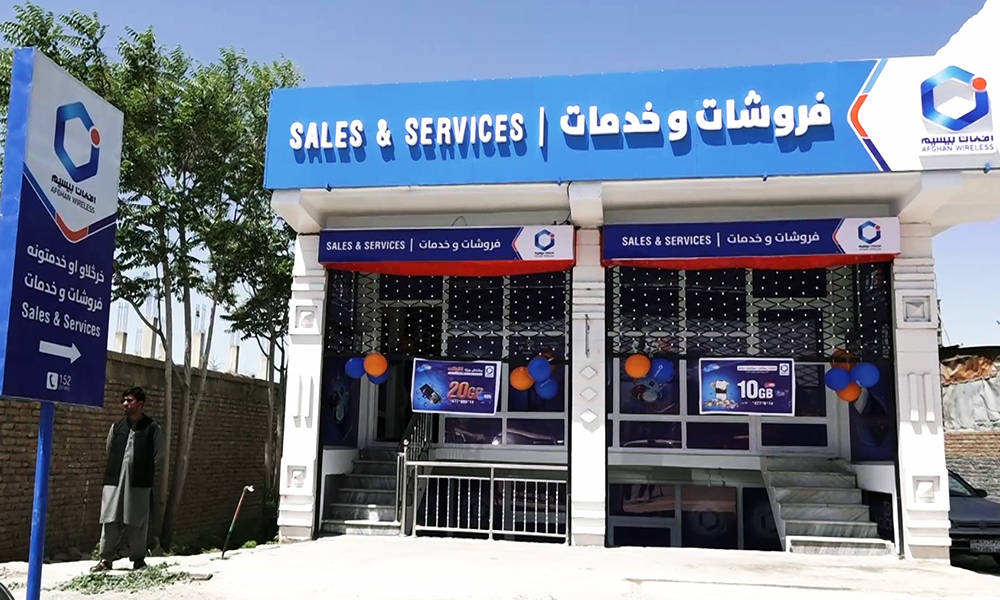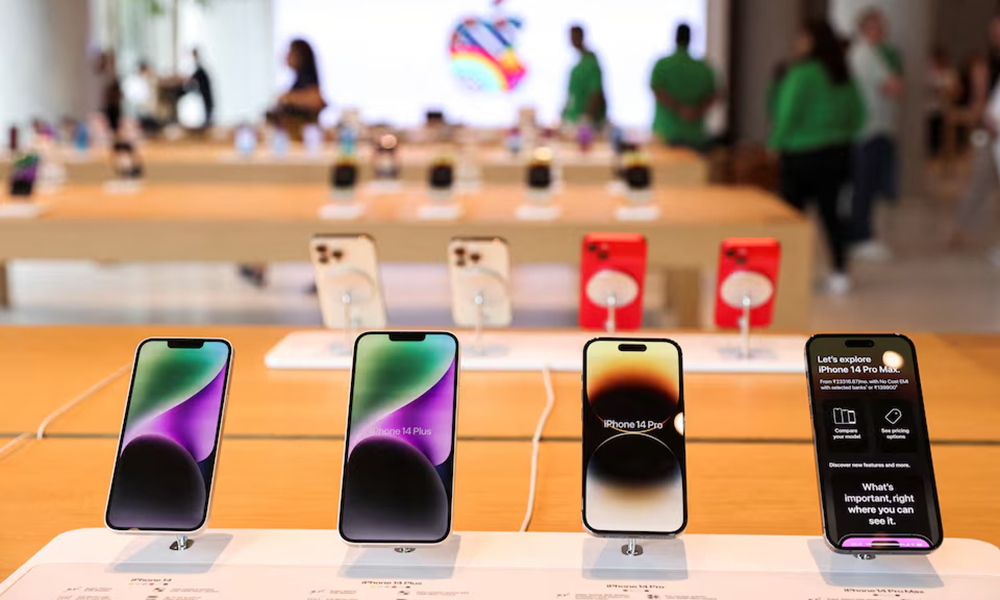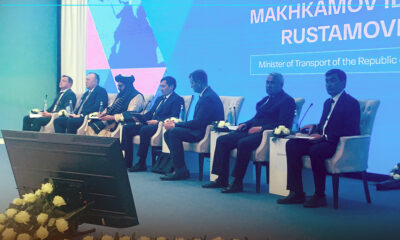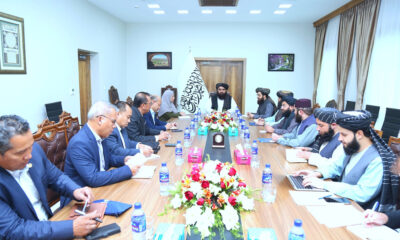Science & Technology
AWCC continues to connect the nation, opens new branch in Kapisa

The Afghan Wireless Communications Company (AWCC) on Sunday opened a new sales and services center and rolled out 4G internet services in Mahmood Raqi, the capital of Kapisa province.
The deputy governor of Kapisa, the head of telecommunications and information technology, the head of Afghanistan Telecommunications Regulatory Authority (ATRA) and a number of other local officials attended the opening ceremony.
The head of the central zone of AWCC said that the new branch is equipped with advanced facilities and going forward, customers’ queries and problems will be addressed in a timely manner.
“This branch is equipped with all the facilities and is at the service of the people of Kapisa. It solves problems in telecommunications services, be it SIM card or internet,” said Suleiman Khurram, head of the central zone of AWCC.
Kapisa deputy governor welcomed the opening of the branch and the launch of 4G services. He also emphasized that Kapisa is now secure and asked AWCC to expand services to its districts.
“Kapisa has districts where telecommunication services have not yet been provided. We have large valleys where telecommunication services have not yet been provided. We want you to bring such services there as well. Security prevails there,” said Sheikh Asadullah Senan, the deputy governor of Kapisa.
Meanwhile, the director of telecommunications and information technology of Kapisa, emphasized that the office is ready to cooperate with telecom companies to provide cell phone and internet services in the province.
“I am very grateful to AWCC. The people of Kapisa are very happy about this. We are fully ready to cooperate with telecommunications companies,” said Delawar Burhan, Kapisa’s director of telecommunications and information technology.
AWCC officials say that they are hoping to expand services to remote areas in the province in coordination with local authorities.
Science & Technology
Apple loses top phonemaker spot to Samsung as iPhone shipments drop, IDC says

Apple’s (AAPL.O), opens new tab smartphone shipments dropped about 10% in the first quarter of 2024, hurt by intensifying competition by Android smartphone makers aiming for the top spot, data from research firm IDC showed on Sunday.
Global smartphone shipments increased 7.8% to 289.4 million units during January-March, with Samsung (005930.KS), opens new tab, at 20.8% market share, clinching the top phonemaker spot from Apple, Reuters reported.
The iPhone-maker’s steep sales decline comes after its strong performance in the December quarter when it overtook Samsung as the world’s No.1 phone maker. It’s back to the second spot, with 17.3% market share, as Chinese brands such as Huawei gain market share.
Xiaomi, one of China’s top smartphone makers, occupied the third position with a market share of 14.1% during the first quarter, read the report.
South Korea’s Samsung, which launched its latest flagship smartphone lineup – Galaxy S24 series – in the beginning of the year, shipped more than 60 million phones during the period.
Global sales of Galaxy S24 smartphones jumped 8%, compared to last year’s Galaxy S23 series during their first three weeks of availability, data provider Counterpoint previously said.
In the first quarter, Apple shipped 50.1 million iPhones, down from 55.4 million units it shipped same period last year, according to IDC.
Apple’s smartphone shipments in China shrank 2.1% in the final quarter of 2023 from a year earlier.
The drop underscores the challenges facing the U.S. firm in its third biggest market, as some Chinese companies and government agencies limit employees’ use of Apple devices, a measure that mirrors U.S. government restrictions on Chinese apps on security grounds.
The Cupertino, California-based company in June will hold its Worldwide Developers Conference (WWDC), where it will highlight updates to the software powering iPhones, iPads, and other Apple devices.
Investors are closely watching for updates on artificial intelligence development at Apple, which has so far spoken little about incorporating the AI technology into its devices. The company earlier this year lost the crown as the world’s most valuable company to Microsoft (MSFT.O), opens new tab, Reuters reported.
Science & Technology
China launch of relay satellite Queqiao-2 for lunar probe mission successful

China National Space Administration (CNSA) said on Friday its launch of a key signal relay satellite was a “complete success” and it would serve as the communication bridge for its future lunar probe missions for years to come, state media reported.
China launched the satellite Queqiao-2, which was named after a mythological bridge made of magpies, and two miniature satellites, Tiandu-1 and Tiandu-2, on March 20.
Queqiao-2 will be used as a communications bridge between the ground operations on earth and upcoming lunar probe missions on the far side of the moon until at least 2030.
The moon’s near side always faces earth. That means data transfers from the far side are impossible because there is no direct line of sight.
Queqiao-2 researcher and developer Xiong Liang described the satellite as “the main switch” of the whole fourth phase of lunar missions, according to state television CCTV.
“Only when the main switch is flipped on, all the communications can kick off,” Xiong said.
Queqiao-2 will orbit the moon and relay signals to and from the Chang’e-6 mission, which expected to be launched in May. The robotic Chang’e-6 probe will seek to retrieve samples from an ancient basin, acquiring lunar material from the moon’s hidden side for the first time.
Queqiao-2 will also be used as a relay platform for the Chang’e-7 lunar mission in 2026 and the Chang’e-8 mission in 2028.
The functions and performance of Queqiao-2 met mission requirements and it will be able to provide relay communication services for China’s lunar exploration projects and future lunar missions for China and other countries, said the CNSA, according to CCTV.
Queqiao-2 entered its targeted elliptical orbit on April 2 after a correction midway, near-moon braking and orbital manoeuvre around the moon, CNSA said.
The satellite has successfully communicated with Chang’e 4, which was the first spacecraft to perform a soft landing on the far side of the moon and is still carrying out its exploration mission. It also communicated with the Chang’e-6 probe while it is still on the ground earlier this month.
The successful launch of Queqiao-2 comes after the failed launch of another lunar spacecraft DRO-A/B satellites, which was intended to enter the moon’s distant retrograde orbit (DRO).
China has not released any information on whether or not the satellites can be retrieved.
(Reuters)
Science & Technology
Russia aborts planned test launch of new heavy-lift space rocket

Russian space officials on Tuesday aborted the test launch of a new heavy-lift rocket from its far-eastern launch pad.
The Angara-A5 rocket was scheduled to lift off from the Vostochny space launch facility at 0900 GMT Tuesday, but the launch was aborted two minutes before, AP reported.
Yuri Borisov, head of Roscosmos state space corporation, said the automatic safety system canceled the launch after registering a flaw in the oxidizer tank pressurization system.
He said the next launch attempt was set for Wednesday.
Tuesday’s launch was to be the fourth for the Angara-A5, a heavy-lift version of the new Angara family of rockets that has been developed to replace the Soviet-designed Proton rockets.
-

 Sport5 days ago
Sport5 days agoRashid Khan threatens BBL pullout after Australia postpones Afghanistan T20I series
-

 Sport4 days ago
Sport4 days agoAfghanistan Champions League kicks off with grand opening ceremony
-

 Latest News3 days ago
Latest News3 days agoPakistan’s frontiers minister stresses ‘dignified’ return of Afghan refugees
-

 Regional4 days ago
Regional4 days agoIran’s foreign minister downplays drone attack, says Tehran investigating
-

 Latest News5 days ago
Latest News5 days agoTen people killed by floods in Helmand
-

 Business4 days ago
Business4 days agoAfghanistan’s economic prospects are bleak: World Bank
-

 Latest News4 days ago
Latest News4 days agoMore than 800 Afghan refugees deported from Pakistan in two days
-

 Regional2 days ago
Regional2 days agoIranian president lands in Pakistan for three-day visit to mend ties
























